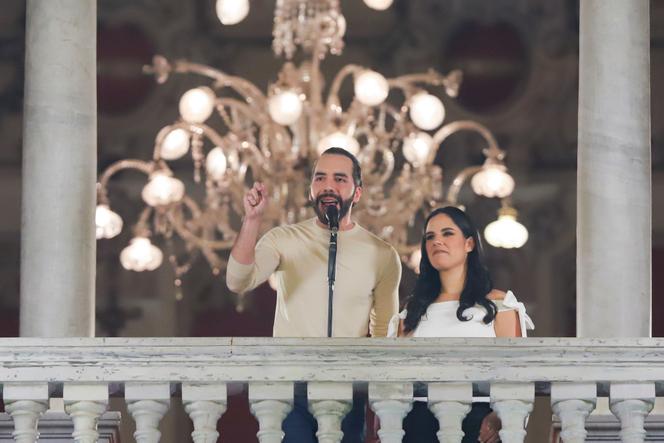


No fewer than six articles of El Salvador's Constitution prohibit the immediate re-election of the president. That did not prevent Nayib Bukele from being re-elected by a landslide on Sunday, February 4. With barely 30% of polling stations counted, he stood on the balcony of the national palace to proclaim himself victorious: "Today, El Salvador has broken all the records of any democracy in the history of the world!" he declared to a jubilant crowd. "Never before has a project won with the number of votes we obtained. This is the highest percentage in all history, over 85% of the vote!"
Some 6.2 million Salvadorans elected the president, vice-president and 60 deputies to the Legislative Assembly. Five other candidates shared the remaining votes. The first of these, Manuel Flores, of the leftist Farabundo Marti National Liberation Front (FMLN), came a long way behind Bukele with 7% of the vote, according to early results, similar to exit polls, which gave the president the winning share with 87% of the vote. The percentage of abstentions was still unknown on Monday morning.
More than anything else, Salvadorans voted in favor of Bukele's iron-fisted anti-gang policies, which have brought peace to the country – at the cost, many NGOs say, of serious human rights violations. The country has been living under a state of emergency since March 2022.
Only 12% of Salvadorans think the re-election is unconstitutional. "The population has little knowledge of constitutional law, and between this debate considered 'sterile' and improving security, it was an easy choice," pointed out Oscar Picardo, director of the Institute of Science, Technology and Innovation at Francisco-Gavidia University in San Salvador.
However, many constitutional experts believe that Bukele's re-election is illegitimate. The president himself has acknowledged several times that immediate re-election is not possible in El Salvador. "The Constitution does not allow the same person to be president twice in a row. They can be president 80 times if she wants, but not consecutively," he said in 2013. More recently, in March 2021, he had replied to the famous YouTuber Luisito Comunica, who asked whether he would seek re-election in 2024: "There is no re-election in El Salvador, and I will no longer be president at 42." He is now 42 years old.
That was before his party Nuevas Ideas and its allies won a two-thirds majority in parliament in 2021. In the first hour of the new legislative assembly's inauguration, on May 1 of that year, it illegally dismissed the attorney general and the magistrates of the constitutional court, who had until then acted as effective checks and balances against creeping authoritarianism.
You have 65% of this article left to read. The rest is for subscribers only.
